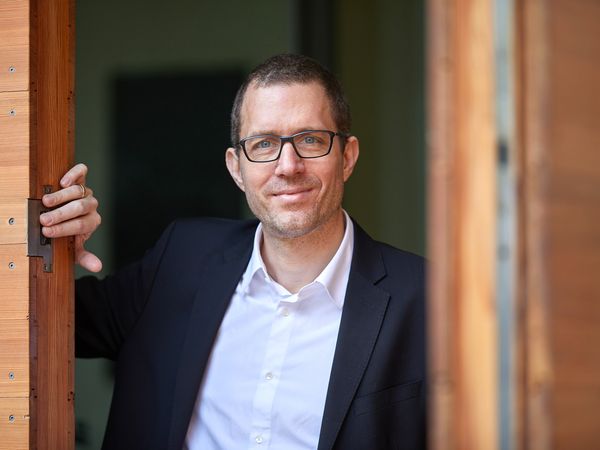Mr Honecker, this year the University of Cologne is hosting the World Economic Geography Congress and the World Archaeology Congress. Do you think that despite the advance of digitalisation, people will continue to come together for conferences?
I believe that, especially for the scientific community, real-life encounters between people will always be important. At conferences, you can use all forms of communication – from specialist lectures and intellectual discussions to informal exchanges. But virtual space can't offer you the opportunity to spend some social time in a nice atmosphere over a Kölsch and make new contacts.
You recently won an award for the best university communication. The topic was ‘communicating current university research to society’ and thus bringing it into the social dialogue. What convinced the jury?
The President of the German Rectors' Conference, Professor Horst Hippler, said something very appropriate at the award ceremony. He said that science is the counter-model to populism. One of the biggest challenges, he said, is to communicate the value of its principles of doubt, open-ended questioning and methodological transparency. We are trying to create the conditions for this through our work. Our department has developed a systematic monitoring of current social issues and established a network of ‘matrix correspondents’. These correspondents are based directly with the scientists, i.e. decentrally, and at the same time are closely integrated into the work of the central communications department. They identify the respective target groups and work out how and by which means they can best address them.
Cologne University is one of the oldest universities in Europe. With six faculties, 102 subjects, 10 cross-faculty research and teaching centres, close cooperation with Cologne University Hospital and the research facilities of the Max Planck and Helmholtz Associations, the University of Cologne enjoys an excellent international reputation. Since 2012, the University of Cologne has had excellence status. What does that mean specifically for research?
This status provides us with additional funding to conduct research in highly dynamic networks on topics relevant to the future. The CECAD (Cellular Stress Responses in Aging-associated Diseases) Cluster of Excellence, for example, is trying to decipher the fundamental mechanisms of aging and to find new therapeutic approaches to age-associated diseases. The Cluster of Excellence on Plant Sciences (CEPLAS), with research sites in Jülich, Düsseldorf and Cologne, is investigating how plants can better adapt to environmental conditions and thus ensure the nutrition of a growing world population. The Global South Studies Center Cologne, GSSC, also funded by excellence funding, researches the social, economic, political and cultural changes in the countries of the Global South – with the aim of making these developments more visible and promoting new options for action for current and future global challenges. CERES, the Cologne Center for Ethics, Rights, Economics and Social Sciences of Health, stands for the collaboration of the five disciplines of philosophy, law, economics, social sciences and medicine. CERES is a centre for interdisciplinary research, training and further education, and consultancy on socially relevant issues in the field of health, and networks scientists from Germany and abroad.
The transfer of knowledge to industry plays a central role in strengthening Cologne as a business location. This is how many jobs of the future are created at the interface between science and industry. What do you do to transfer knowledge to industry?
For example, we are involved in the ‘Gateway-Gründerservice’, which supports students and graduates in implementing their own business ideas. The high density of companies in the region offers an ideal environment for this. Another example is the Center for Organic Electronics COPT, which builds a bridge between cutting-edge university research and companies. The 45 graduate schools and colleges currently in existence provide ideal conditions for young scientists! The university makes Cologne vibrant. Cologne is one of the few German cities that is getting younger despite demographic change. More than half of the graduates stay in Cologne, start their own businesses, find a job in the cathedral city and contribute to the future of the city.
